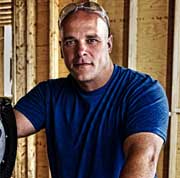A poorly ventilated kitchen can result in many issues that can adversely affect your client and their customer’s health and the overall living and dining quality. In this blog post, we’ll explore the five crucial benefits of proper ventilation in your project’s cooking area and how you can help your clients maintain it for a long-time.
Five importance of good ventilation in kitchens:
1. Health and Safety
A well-ventilated kitchen effectively aids in removing cooking fumes, smoke, and other harmful debris from the air. It also helps to prevent respiratory problems, allergies, and other health issues that can emerge from lengthy exposure to polluted air, enhancing the air quality and maintaining a cozy and healthy environment for cooking and eating.
In addition, good ventilation contains the buildup of harmful gases like carbon monoxide, usually produced by gas stoves, ovens, and other cooking appliances. It’s especially vital as this dangerous gas is odorless and colorless, making it extremely difficult to detect and, more importantly, fatal if left unchecked.
2. Odor Control
Cooking produces a variety of odors that can linger in the air and on surfaces, including countertops, walls, and floors, for hours, even after you finish a meal. The best way to limit these unpleasant smells is to have excellent ventilation around the house and commercial kitchen.
Removing these odors through proper ventilation can aid in keeping the kitchen smelling fresh and clean. Furthermore, it creates a more comfortable and enjoyable cooking and dining experience for your client’s family or restaurant customers.
3. Moisture Control
Cooking, washing dishes, and other damp activities in the kitchen produce moisture that can stem the growth of wood rot, corrosion, mold, and mildew. Good ventilation fights to diminish the moisture levels inside your house or restaurant kitchen project, averting the development of these detrimental substances and improving indoor air quality. Moreover, it regulates humidity levels, reducing mold and mildew evolution risks and discouraging damage from wood and metal surfaces.
4. Fire Safety
Proper ventilation is critical for stopping fires in the kitchen. Cooking, frying, and grilling generate heat and flames; without adequate ventilation, these can instantly build up and create a fire hazard.
With an excellent ventilation system, your clients can remove excess heat and prevent the increase of flammable gases, diminishing instances of fire starting or spreading. Installing a Bilco acoustical smoke vent can also boost the efficient ventilation in your house or restaurant kitchen project. It effectively helps eliminate harmful smoke once a fire occurs.
5. Proper Ventilation Brings Kitchen Comfort
Good ventilation is indispensable for any kitchen. It supports maintaining a healthy and safe environment, controlling odors, preventing moisture buildup, improving fire safety, and providing a comfortable working environment. Therefore, if your house or commercial kitchen project still needs proper ventilation, consider following our shared tips to make cooking spaces a safer and more comfortable workplace.











